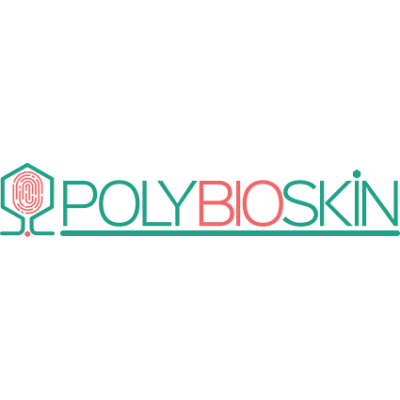
POLYBIOSKIN
High performance functional bio-based polymers for skin-contact products in biomedical, cosmetic and sanitary industry

High performance functional bio-based polymers for skin-contact products in biomedical, cosmetic and sanitary industry
Biopolymers offer high antimicrobial, antioxidant, absorbency, skin compatibility for high performance demanding skin-contact applications. These include would dressings, children’s nappies and facial beauty masks.
However, many of the polymers used in biomedical and cosmetic applications rely on fossil-derived sources. Although a number of alternative bio-based polymers is the subject of recent research, more effort is still needed to increase their specific functionalities and performances in order to proceed with their true translation into market.
The POLYBIOSKIN project seeks to broaden the use of biopolymers in strategic and demanding skin-contact applications by developing skin-contact bio-polymer based product parts with increased performance and functionality derived from biomass and food waste, providing a more environmentally friendly end of life given their biodegradability allowing organic recycling.
POLYBIOSKIN is focused on delivering nine core objectives:
POLYBIOSKIN will create further innovation in the green economy, placing Europe in a leading position in the development of high-performance, eco-friendly biopolymers.
POLYBIOSKIN nappies will improve waste management practices, in particular replacing incineration and landfilling with organic recycling without compromising sustainable mechanical recycling options.
POLYBIOSKIN that can unlock the opportunities for substituting conventional fossil-based materials with more sustainable bio-based ones beyond packaging applications into high-value market niches
It will also contribute to Europe’s target of 20% of the chemicals and materials production being bio-based by 2020.
It will also help bring the consumer sector the advantages of advanced bio-based and biodegradable materials
POLYBIOSKIN project develops novel materials for high-performance, eco-friendly skin-contact products
2 February 2021
Companies haven’t paid much attention to the environmental impact of skin-contact products like diapers and wound dressings. The BBI JU-funded POLYBIOSKIN project introduced new materials for more sustainable, environmentally friendly products. Read more
Sustainable nappies for eco-friendly generations
15 July 2019
EU statistics report that some seven million babies in Europe use up to 36 million disposable nappies in only one day. BBI JU POLYBIOSKIN and EMBRACED projects are sketching out different solutions to reduce the pollution from plastics in diapers. Read more